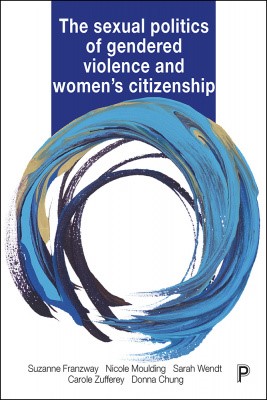Our team members are involved in a wide range of research projects exploring the promotion of safe relationships and communities. Our research includes projects on the impact of intimate partner violence and family violence on individuals, families and communities and approaches to prevention and support, supporting families and children who have experienced family violence, women’s housing after domestic violence, the impact of childhood emotional abuse on adult mental health and supporting women who mother in domestic violence. A key study conducted by SRC members involved ground-breaking research into the impact of intimate partner violence on women’s citizenship.
Current Projects
Understanding the long term impact of childhood emotional abuse
Australian Research Council Discovery Project
Investigators: Nicole Moulding, Fiona Buchanan, Emma Tseris (University of Sydney), Barbara Fawcett (University of Strathclyde, Scotland, UK)
This project will generate new knowledge about the social dimensions of childhood emotional abuse. Experiences of childhood emotional abuse are extremely common, with many affected individuals going on to face long term health problems, social marginalisation, intergenerational family violence and re-victimisation. This project will investigate how different social contexts influence childhood emotional abuse itself and the interconnected problems flowing from it that often persist over the life course. The findings of this project will increase the evidence base and inform the future development of policy and practice that aims to prevent the intergenerational transmission of violence and abuse, and improve health and social outcomes.

What helps young people create healthy relationships and reject domestic violence?
Channel 7 Children's Research Foundation project
Investigators: Fiona Buchanan, Nicole Moulding, Cathy Humphreys (University of Melbourne)
The project seeks to understand what helps young people who have endured domestic violence as children to create healthy relationships, free from domestic violence and coercive control, in their adult relationships. Contrary to the theory of 'intergenerational transmission of abuse' it is known that many young people raised in domestic violence do not perpetrate or endure victimization in their own adult relationships. Through surveying and interviewing a cohort of these young people we aim to identify social factors that positively influence children who grow up in domestic violence and influence them to choose healthy relationships for themselves as they move into adulthood. Social factors may include supportive extended family members and/or friends, interests and hobbies, media messages that promote healthy relationships, school involvement, health care systems and other organizational supports to name a few. The aim is to find ways that policies, public campaigns, services and community supports can have positive effects which enable young people to thrive in their own relationships despite early exposure to domestic violence.
Please see below for an overview of results from this study:
Overview of Findings CRF Report.pdf

Mental health peer support for young women at risk
Breakthrough Mental Health Foundation Project
Investigators: Nicole Moulding, Michele Jarldorn, Jane Andrew
Partners: Uniting Communities, Professor Christine Morley (Queensland University of Technology), Dr Emma Tseris (University of Sydney)
This project explores the scope of mental health peer support for young women at risk. Young women have two to three times higher rates of common mental health problems than young men, with abuse a key factor behind this difference. There is evidence from international research that trauma-informed, gender-responsive peer support in women-only groups can be highly effective in improving key indicators of mental wellbeing in at risk young women. This project will identify the key components of successful mental health peer support for Australian young women. We will use a mixed methods approach to review the research evidence on peer support; explore young women’s experiences of services and preferred models of support; co-design with young women preventive trauma-informed, gender-responsive online mental health resources; and work towards development of a pilot mental health peer support program for young women in the Australian context.

Past Projects
Gendered violence and citizenship: the complex effects of intimate partner violence on mental health, housing and employment
 Australian Research Council-funded Discovery Project
Australian Research Council-funded Discovery Project
Investigators: Suzanne Franzway, Nicole Moulding, Carole Zufferey, Donna Chung and Sarah Wendt
This project revealed the interconnected impact of intimate partner violence on women’s citizenship with a focus on mental health, housing, work and social participation. The project contributed to the development of domestic violence leave for South Australian public servants and the establishment of the Zahra Foundation. A book has been recently published from this study entitled, Franzway, S., Moulding, N.T., Wendt, S., Zufferey, C. & Chung, D. (2019) The Sexual Politics of Gendered Violence and Women’s Citizenship. Bristol: Policy Press.v



